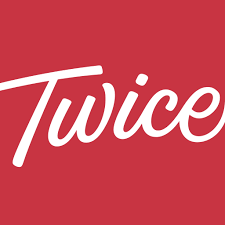记忆方法
1、PIE root dwo-, dwi- "two, double" => two, twice, twain, twin, duo.
中文词源
twice 两次,两倍
twi-,二,-ce,副词后缀。
英语词源
- twice
-
twice: [12] Twice was formed from Old English twige ‘twice’ (itself based on twi-, the combining form of two) and the genitive ending -s, which was used for creating adverbs, such as always, nowadays, once, thrice, etc.
=> two - twice (adv.)
- late Old English twies, from Old English twiga, twigea "two times," from Proto-Germanic *twiyes (cognates: Old Frisian twia, Old Saxon tuuio), from PIE *dwis-, adverbial form of *dwo- "two" (see two). Spelling with -ce reflects the voiceless pronunciation.
Life is as tedious as a twice-told tale
Think twice, then speak was an "old Prouerbe" by 1623. At twice, though less common than at once, means "at two distinct times; by two distinct operations."
Vexing the dull ear of a drowsy man.
["King John," III.iv.]
权威例句
- 1. The car passed over the body twice, once backward and then forward.
- 那辆车把那人来回轧了两次,先是倒着轧的,再是往前开着轧的。
- 2. They are in twice daily radio contact with the rebel leader.
- 他们每天用无线电和叛军首领联系两次。
- 3. The legislation has twice been rejected by the House of Lords.
- 该法规已经两次遭到上议院的否决。
- 4. Liam surprised his tutors by twice failing a second year exam.
- 利亚姆两次都没能通过大二的一门考试,这让他的导师们很吃惊。
- 5. I phoned twice a day, leaving messages with his wife.
- 我每天打两次电话,托他妻子捎口信。

